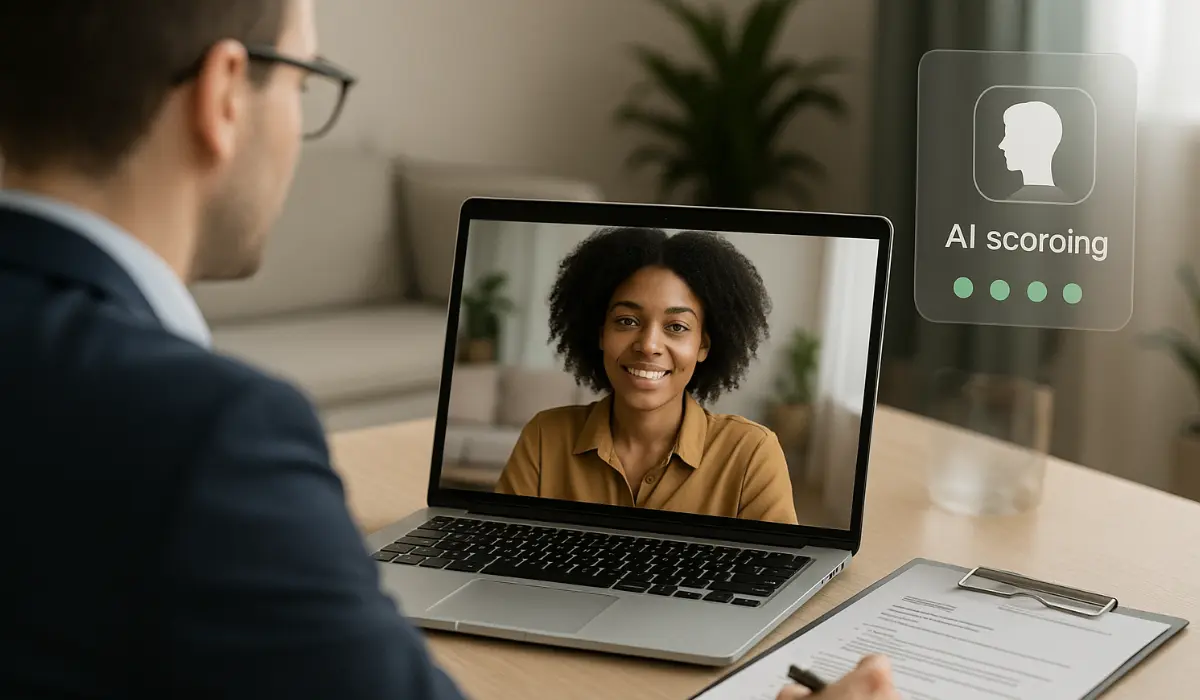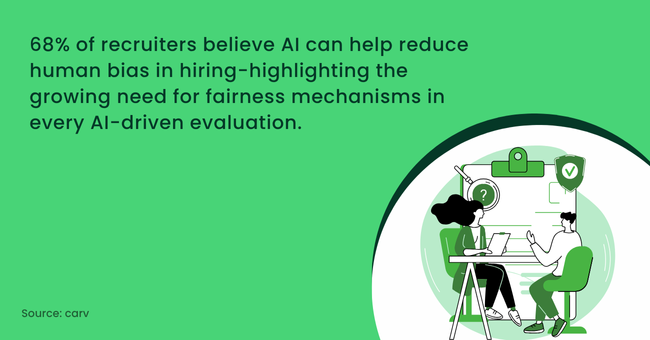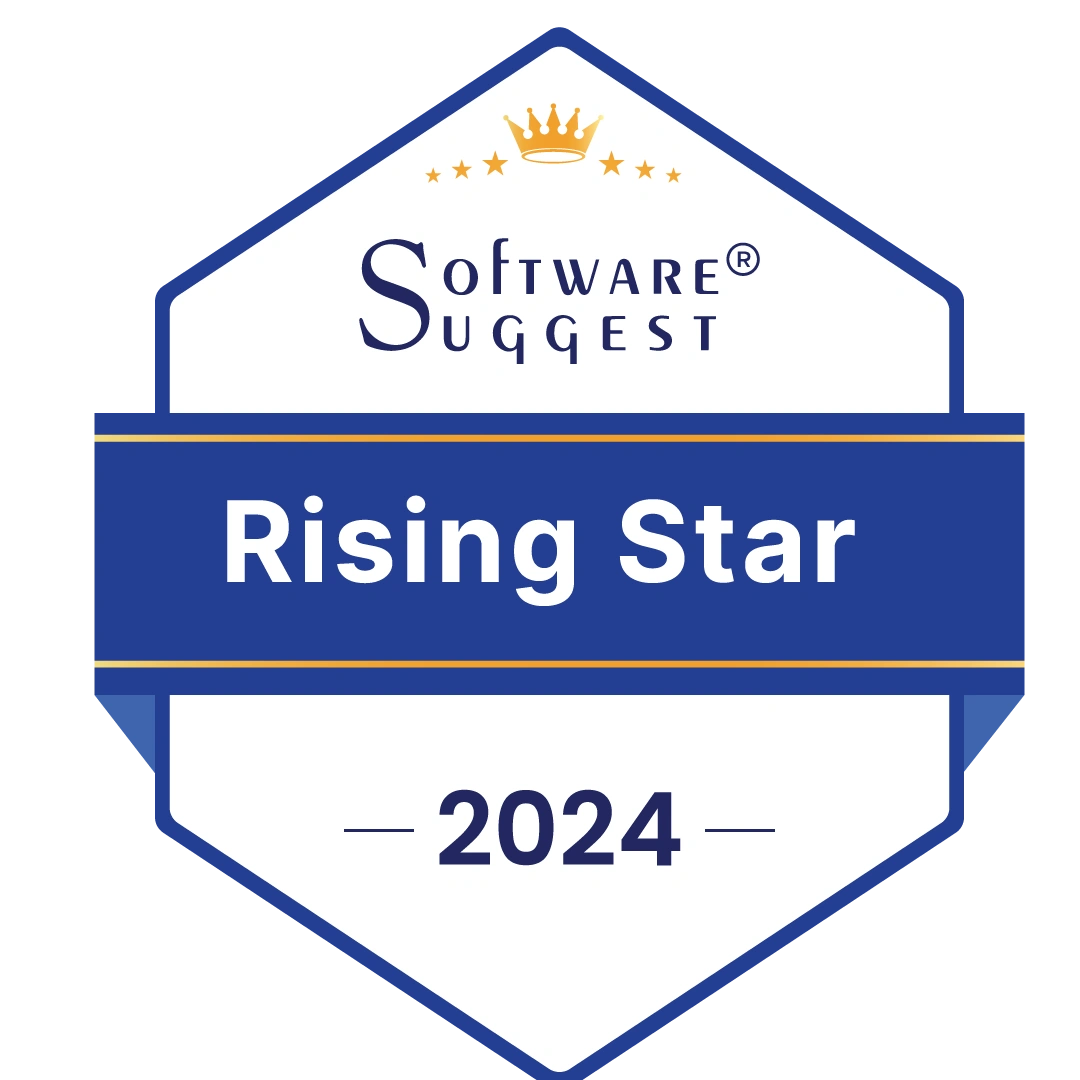
Ethical AI Scoring for Transparent Asynchronous Interviews
Oct 28, 2025 |
In today’s digital hiring ecosystem, Ethical AI Scoring is transforming how companies conduct asynchronous interviews. It’s no longer just about automating video interviews-it’s about ensuring transparency, fairness, and explainability at every stage of candidate evaluation. As organizations shift towards data-driven recruitment, ethical and transparent AI systems are emerging as the future of trustworthy hiring.
Redefining Trust in AI-Powered Hiring
The landscape of hiring has evolved rapidly with AI in recruitment. Employers are leveraging asynchronous interview platforms to streamline hiring and evaluate talent globally with flexibility and objectivity. Yet, with great power comes the responsibility to ensure these AI-driven evaluations are fair and unbiased.
Transparent Asynchronous Interviews provide candidates equal opportunity to present their skills without real‑time pressure while enabling recruiters to make balanced, consistent judgments. However, the central question remains: Can AI truly be fair? That’s where Ethical AI Scoring enters the picture, helping organizations build candidate trust through AI transparency and accountability.
TL;DR:
- Ethical AI Scoring ensures transparency, fairness, and explainability in asynchronous interviews, making AI-driven hiring more accountable and unbiased.
- Promotes AI transparency and ethical frameworks to eliminate discrimination based on background, accent, or gender.
- Enhances candidate trust through clear, explainable scoring and transparent decision-making.
- Combines human oversight with automated accuracy for consistent evaluation.
- Builds equitable, compliant, and trustworthy AI hiring ecosystems that strengthen employer brand credibility.
What Is Ethical AI Scoring and Why It’s Critical for Asynchronous Interviews?
Ethical AI Scoring is the practice of designing and using AI models that evaluate candidate video responses or assessments based on fairness, non‑bias, transparency, and explainability. In asynchronous interviews, candidates record answers at their convenience, and the AI system analyzes them for traits like communication clarity, confidence, or skill alignment.
Ethical scoring ensures these models don’t favor any candidate based on gender, ethnicity, accent, or background. It applies AI transparency frameworks to make every scoring decision explainable. Recruiters can see why a candidate scored a certain way, not just what the output was.
These ethical frameworks promote AI interview fairness by prioritizing:
- Data integrity and informed consent
- Fair and explainable decision logic
- Transparent auditability for every decision made by AI
This creates a culture of trust across both hiring teams and candidates. Implementing ethical AI Scoring allows recruiters to evaluate candidates with confidence while maintaining fairness and compliance.
The Evolution of Asynchronous Interviews and Ethical AI Scoring
Traditional interviews were time‑bound and often limited by scheduling, geography, or interviewer bias. The introduction of asynchronous interviews broke those barriers, allowing candidates to participate on their terms, while AI interview scoring made evaluation scalable.
However, early AI interview tools lacked ethical auditing and transparency, leading to skepticism. Over time, the adoption of Ethical AI Frameworks and Transparent AI Scoring methodologies has drastically improved candidate confidence.
These frameworks align with evolving global standards in fair AI use, much like those discussed in resources like Best Video Interview Software and AI in Recruitment, where the importance of trust and automation balance is emphasized.
Why Transparency in Asynchronous AI Interviews Matters
AI Transparency means that decisions made by AI systems can be understood and validated. For asynchronous hiring transparency, this is crucial to ensure that candidates and HR teams can trace how conclusions are drawn.
Transparent scoring systems promote explainable decision logic, reducing bias and misinformation. When candidates understand that Ethical AI Scoring systems evaluate everyone equally using objective parameters, it enhances trust and participation rates. With ethical AI Scoring, transparency becomes measurable and verifiable across every stage of AI-driven recruitment.
The benefits go beyond compliance:
- Recruiters gain clarity and accountability in every decision.
- Candidates experience a sense of fairness and dignity.
- Companies strengthen brand reputation through responsible AI adoption.
How Ethical AI Scoring Ensures Fairness and Accuracy
Behind every ethical AI model lies a structured mechanism of fairness. Ethical interview scoring models train on diverse datasets and continuously monitor for potential bias drift. These models ensure consistency across all candidates and help recruiters make equitable decisions in asynchronous AI interviews.
Carv studies show that 68% of recruiters believe AI can help reduce human bias in hiring decisions, a promising trend that underscores the importance of maintaining fairness mechanisms in every AI-driven evaluation. By implementing data governance principles, companies comply with GDPR and local employment laws that demand explainable and fair recruitment systems. Ethical AI Scoring combines the benefits of automation with genuine human oversight-ensuring decisions to remain context‑aware.

For instance, forward‑thinking organizations use ethical frameworks like those highlighted in Creating a Diverse Workplace to guide fair AI hiring practices. This alignment between diversity culture and AI transparency gives companies a competitive edge in inclusive recruiting.
Transparent AI Interview Scoring Methods Explained
Transparent AI Interview Scoring methods rely on explainable architectures that justify every scoring parameter. Some companies opt for rule‑based systems, where pre‑defined behavioral markers determine scores. Others use multi‑dimensional analysis, combining voice tone, speech pacing, and content relevance within ethical boundaries.
Integrating AI explainability tools, such as SHAP or LIME, helps visualize what influeced a candidate’s score. These tools empower HR professionals to interpret outcomes transparently and offer constructive feedback.
For those integrating advanced tools, exploring AI in One‑Way Video Interviews can provide practical blueprints of how AI transparency elevates hiring confidence.
Implementing Best Practices for Ethical AI Scoring in Asynchronous Hiring
Building an effective Ethical AI Scoring system starts with thoughtful design and governance. Recruiters and developers should follow these key practices:
- Align models with global AI transparency guidelines.
- Include human-in-the-loop reviews for nuanced judgments. Conduct bias audits regularly.
- Use secure, anonymized data at every training stage.
- Implement continuous learning mechanisms to refine scoring accuracy.
Organizations that follow these principles not only ensure fairness but also improve talent acquisition outcomes. Incorporating practices outlined in resources like How to Choose Video Interview Software can further streamline ethical model selection in asynchronous hiring. Following these practices ensures that ethical AI Scoring systems remain fair, adaptive, and human-centered.
How to Ensure Fairness in Asynchronous AI Interviews with Ethical Scoring
Fairness in AI hiring means maintaining equal opportunity and consistent performance evaluations. Combining automation with human judgment ensures no candidate is unfairly penalized due to algorithmic patterns.
Companies track fairness metrics such as demographic parity, equal opportunity scores, and transparency indexes to ensure compliance and ethical operation. These quantifiable KPIs represent measurable accountability in hiring.
Real-world applications, such as asynchronous models implemented by tech‑forward enterprises, show how Transparent Asynchronous Interviews improve the recruiter‑candidate relationship. When candidates trust the system, overall brand perception and hiring outcomes improve correspondingly.
Building an Ethical AI Framework for Transparent Hiring
Constructing a functional Ethical AI Framework begins by embedding transparency principles into every design layer-data collection, model training, scoring interpretation, and system auditing.
Key components include:
- Diverse and representative training data
- Clear governance and escalation protocols
- Transparent hiring policies
- Explainable scoring architecture
Many HR leaders adopt strategies from guides such as HR Process Improves Employee Experience and Guide to Find & Recruit Top Talent to ensure their frameworks align with overall organizational ethics.
Continuous updates to AI transparency tools guarantee compliance with evolving fairness regulations. As the technology matures, AI models must be retrained periodically to reflect ethical relevance and maintain trustworthiness.
Future of Transparent Asynchronous Interviews
The next frontier of Transparent Asynchronous Interviews will be deeply integrated Ethical AI Frameworks capable of self-monitoring and accountability reporting. Recruitment ecosystems will rely on dynamic explainability dashboards that visualize fairness metrics and candidate confidence scores.
We’ve already witnessed the early stages through intelligent systems that auto-summarize one-way interview responses enabling hiring teams to assess efficiently without losing ethical alignment.
The global shift toward transparent AI-driven hiring will unify candidate experience, recruiter efficiency, and business integrity. As organizations invest in responsible AI innovation, they will gain not only efficiency but also long-term brand credibility in sustainable, fair recruitment.
Conclusion
Adopting Ethical AI Scoring is not just a technical upgrade-it’s a cultural shift towards transparent, fair, and explainable hiring. By ensuring objectivity in asynchronous interviews, organizations demonstrate their commitment to equal opportunity and social responsibility.
Transparent Ethical AI Scoring enhances candidate trust, provides recruiters with richer insights, and meets compliance with global AI ethics standards. It paves the way for AI interview fairness, advancing recruitment transparency while safeguarding human values.
For organizations exploring modern recruitment trends, related reads such as the Guide to One-Way Video Interview and Techniques to Enhance Your Recruiting Process extend valuable insights into integrating AI ethically.
The future of recruitment lies in embracing accountable AI systems, where every decision, every score, and every assessment is transparent, understandable, and aligned with the core values of fairness and equality.
Frequently Asked Questions - FAQ
1. What is Ethical AI Scoring in Recruitment?
Ethical AI Scoring ensures fair, unbiased evaluations in asynchronous interviews by using AI models that are transparent and explainable. It helps eliminate discrimination based on gender, ethnicity, or accent, ensuring equal opportunities for all candidates.
2. How Does Ethical AI Scoring Improve Fairness in Asynchronous Interviews?
Ethical AI Scoring promotes fairness in asynchronous interviews by using unbiased data and transparent algorithms. AI tools like SHAP or LIME provide explainable decision-making, ensuring consistency and trust in the recruitment process.
3. Why Is Transparency Important in Asynchronous AI Interviews?
Transparency in asynchronous AI interviews ensures that candidates and recruiters understand how decisions are made. It builds trust by using clear, objective criteria for evaluations, improving both AI explainability and candidate engagement.
4. What Are the Best Practices for Implementing Ethical AI Scoring in Asynchronous Hiring?
Best practices for Ethical AI Scoring include using diverse training data, conducting regular bias audits, integrating AI transparency tools, and combining human oversight with AI evaluations. These steps ensure fairness and compliance in asynchronous hiring.
5. How Does Ethical AI Scoring Align with Fair AI Hiring Standards?
Ethical AI Scoring aligns with Fair AI Hiring by ensuring unbiased evaluations based on transparent, explainable models. It promotes fairness in asynchronous interviews and helps organizations meet global standards for ethical AI and diversity.













